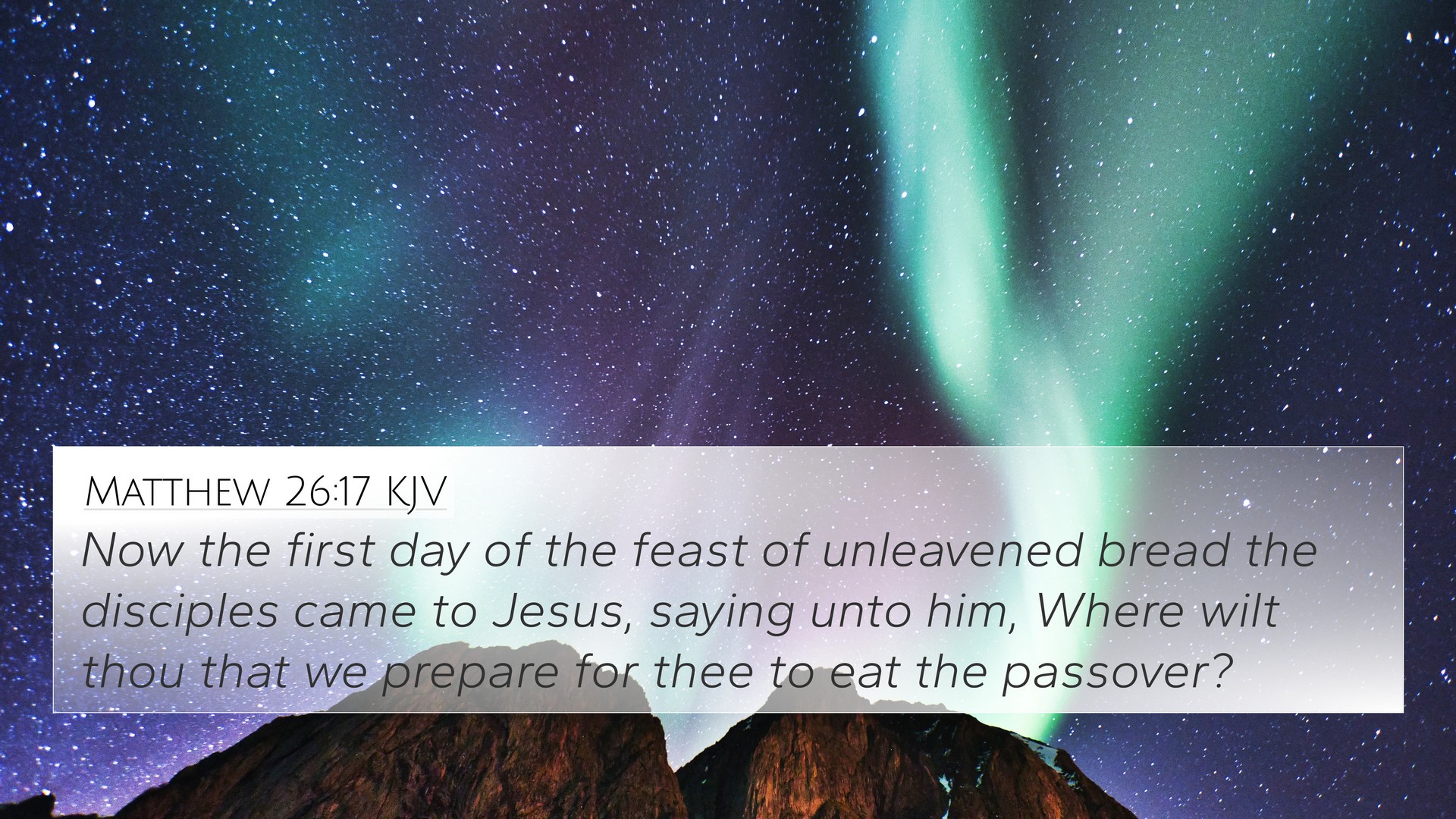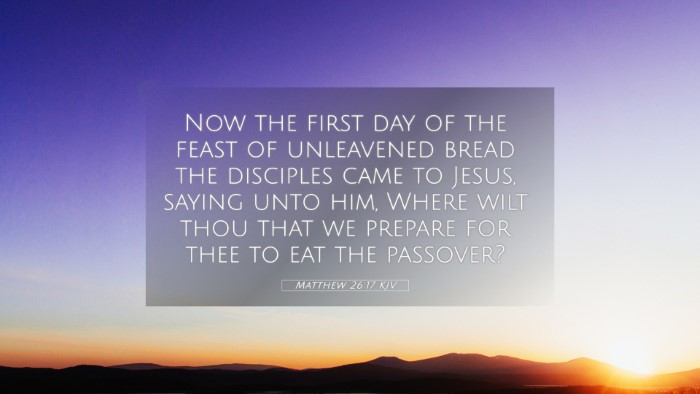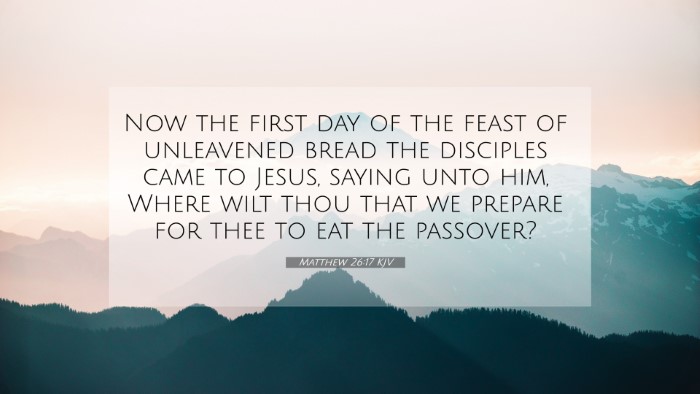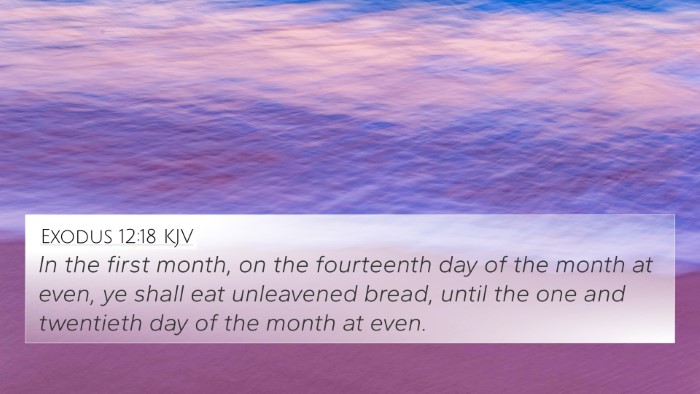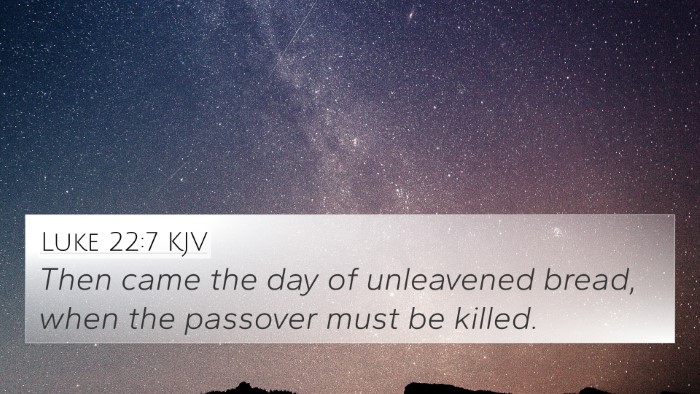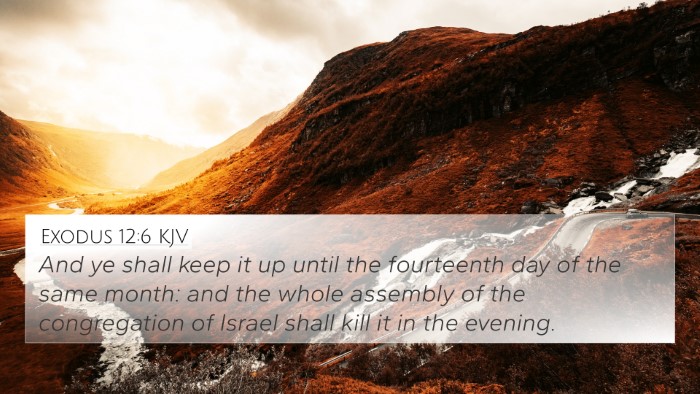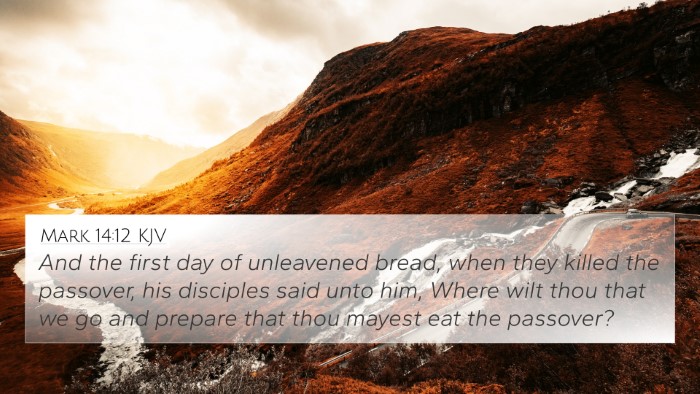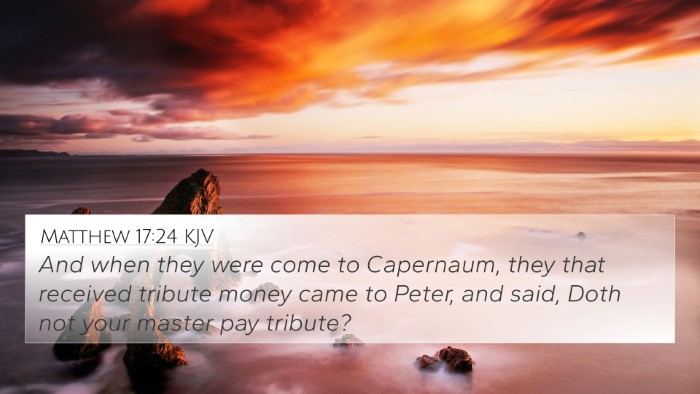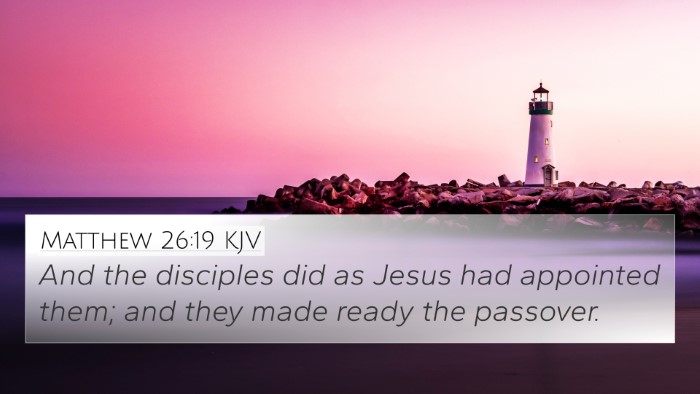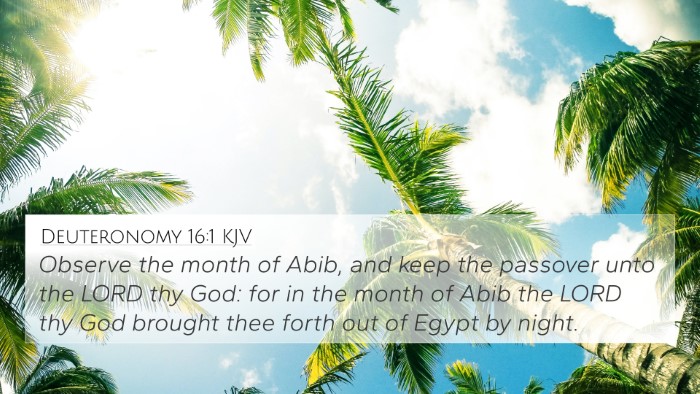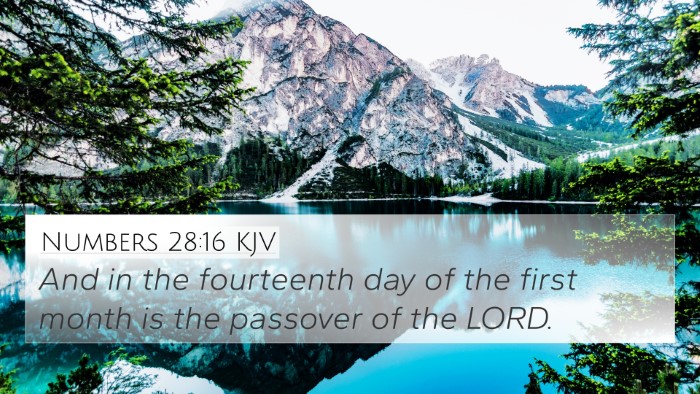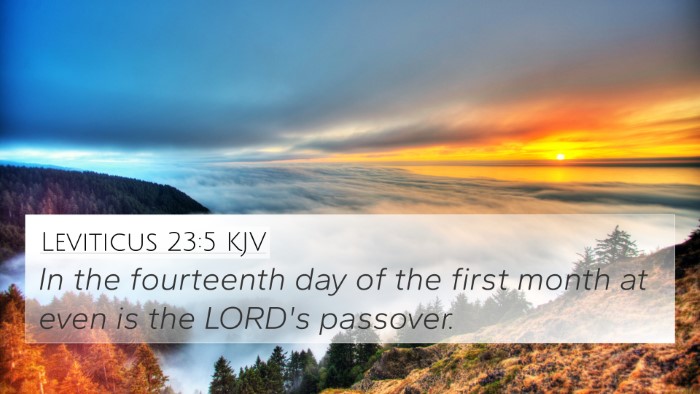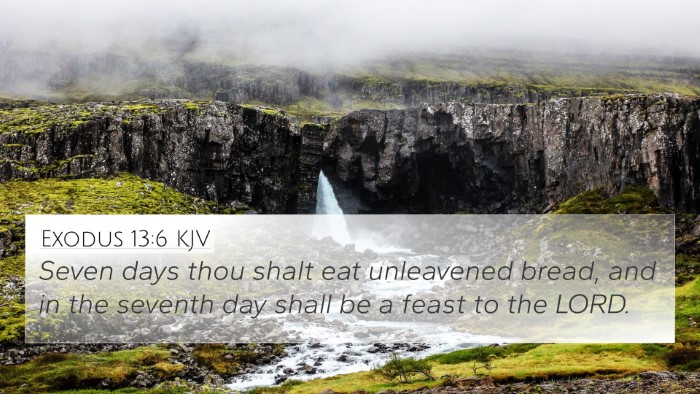Bible Verse Meaning: Matthew 26:17
Verse Reference: Matthew 26:17 (KJV): "Now the first day of the feast of unleavened bread the disciples came to Jesus, saying unto him, Where wilt thou that we prepare for thee to eat the passover?"
Summary of Matthew 26:17
This verse marks a significant moment leading up to the Last Supper, which takes place during the Feast of Unleavened Bread. The disciples approach Jesus with a practical question regarding the preparation of the Passover meal, showcasing their devotion and eagerness to fulfill Jewish customs.
Interpretation and Insights
This passage highlights the themes of obedience, tradition, and the impending establishment of a new covenant. Commentators such as Matthew Henry, Albert Barnes, and Adam Clarke provide deeper insight into this interaction:
- Matthew Henry: He emphasizes the importance of the Passover as a celebration of deliverance, underscoring the disciples' desire to honor their heritage. Henry notes that their inquiry reflects their commitment to tradition and their role as followers of Christ.
- Albert Barnes: Barnes points out that the question posed by the disciples signifies their need for guidance from Jesus, who is not only their leader but also the one who will redefine the significance of the Passover. Their reliance on Him demonstrates their faith and understanding of His authority.
- Adam Clarke: Clarke elucidates that the request to prepare for Passover indicates the importance of community and fellowship in worship. He also highlights the prophetic significance of this meal, indicating that it foreshadows Jesus' sacrifice, which will transform the understanding of the Passover for all believers.
Thematic Connections
Matthew 26:17 connects with several key Biblical themes and verses:
- Exodus 12:14: The original Passover commemorates Israel's deliverance from slavery in Egypt, establishing a foundational connection to the Last Supper.
- Luke 22:15: Jesus expresses His intense desire to eat the Passover with His disciples, underscoring the importance of this moment.
- Mark 14:12: This verse parallels Matthew's account, providing a similar narrative context of the Passover preparation.
- Matthew 26:26-28: The subsequent verses describe the institution of the Lord's Supper, directly linking to the significance of the preparation in this verse.
- 1 Corinthians 11:23-26: Paul recounts the Last Supper, illustrating the lasting implications of this event for Christian practice.
- John 6:53-58: Jesus discusses the necessity of partaking in His body and blood, providing a theological connection to the Passover meal.
- Hebrews 9:12-14: This passage emphasizes Christ's sacrificial role, relating the Passover to the new covenant established through His sacrifice.
Cross-Referencing Biblical Texts
Understanding the connections between Matthew 26:17 and other verses enhances the comprehension of its significance:
Through the lens of cross-referencing Biblical texts, we see how this moment foreshadows the entirety of the Gospel narrative, from His birth to His death and resurrection. Tools for Bible cross-referencing can help in finding these thematic links:
- Connections to Old and New Testament: Identifying relationships between passages, such as the importance of Passover in Exodus and its fulfillment in Jesus.
- Comparative Bible verse analysis: Comparing this narrative with other Gospel accounts to understand its unique elements.
- Cross-referencing Psalms: Analyzing references to the Messiah in the Psalms and their fulfillment in Christ’s actions during the Last Supper.
Preparation for Further Study
For those engaging in deeper study, the following resources are valuable:
- Bible Concordance: A tool for locating specific verses and understanding their context more thoroughly.
- Bible Reference Resources: Guides for linking scripture that assists in thematic studies.
- Bible Chain References: Explore interconnected verses that enhance your grasp of biblical narratives.
Conclusion
The context of Matthew 26:17 serves as a precursor to understanding the depths of the Last Supper and the establishment of the new covenant. Engaging with thematic Bible verse connections, one can see how each element of scripture builds upon another, revealing the greater narrative of salvation history.
In study and reflection, believers are encouraged to delve into these biblical interrelations, as doing so fosters a richer understanding of God's word and His intentions throughout history.
